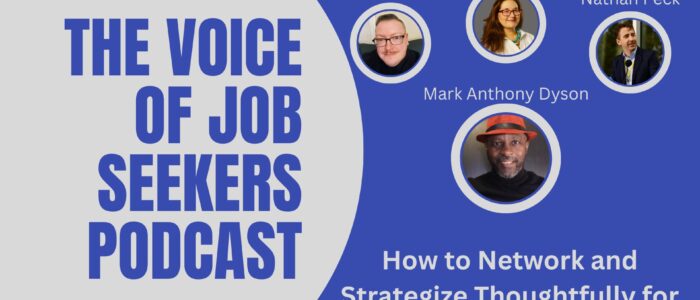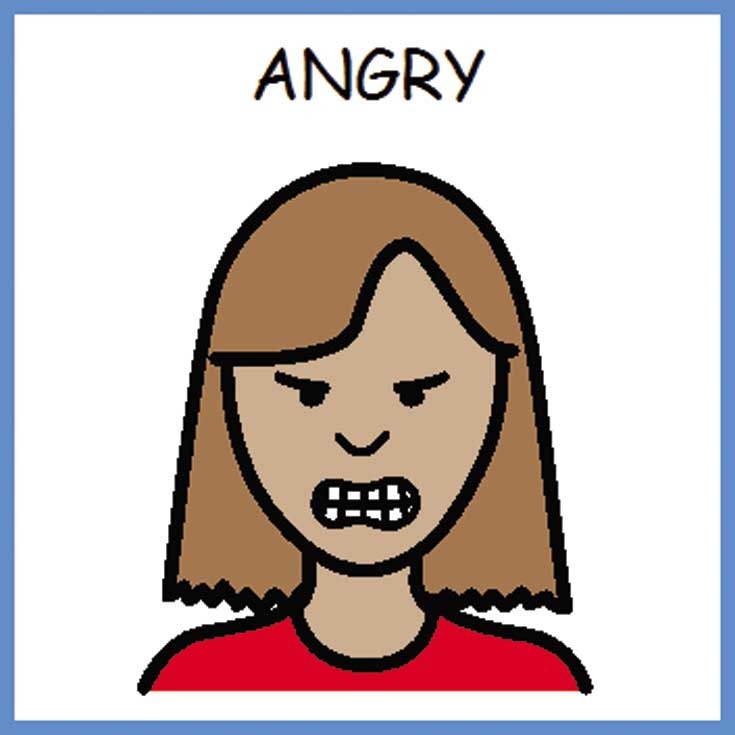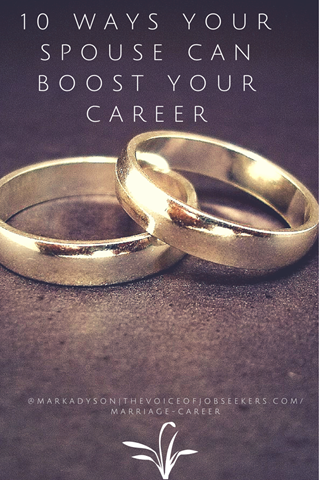
Podcast: Play in new window | Download | Embed
Subscribe: Apple Podcasts | RSS
Welcome back to The Voice of Job Seekers podcast. I took an unannounced break from this podcast to concentrate on content for “The Job Scam Report” podcast. Some of you subscribe to the newsletter and podcast. Many good things have been happening there, so it has been quite busy.
In March of 2024, I was invited to join a panel (actually two) at St. Xavier’s University in Chicago. The panel consisted of Nathan Peck, an Associate Professor, James Miller, Shared Governance President, and Lauren Milligan, Founder of ResuMayDay, a Resume Writer and Career Coach. Each session had about 30-50 students.
Below are some of the highlights of the 75-minute panel:
Craft a Strong Resume: We encouraged students to tailor their resumes to highlight relevant skills and experiences for each job application, ensuring they’re clear and visually appealing. Lauren provided a basic overview of the ATS (Applicant Tracking System) and its role in hiring and emphasized the need for simplicity. She also added how ChatGPT can be helpful in the process.
Optimize Your LinkedIn Profile: The panel collectively agreed students must create a compelling LinkedIn profile to reflect their professional brand, including a professional photo, detailed work experience, and engaging summaries. We discussed how LinkedIn can facilitate the expansion of their network, and learning from successful career industry professionals through their profiles.
Network Actively: We advised students on building and nurturing professional relationships through networking events, social media, and industry groups to increase job opportunities and get referrals. Networking is vital for career advancement today, especially for introverts. It’s a great connection hub for building relationships with present and future collaborators.
Develop Interview Skills: Practice common interview questions and situational responses to prepare for interviews, enhancing confidence and communication. Lauren and I honed in on informational interviews as a tool. Students should do many of them to hone their interviewing skills, add depth to their network and industry knowledge, and accept feedback as constructive direction.
Create a Multi-Tiered Job Search Strategy: Implement various job search methods, such as job boards, company websites, recruitment agencies, and direct networking, to maximize reach. The college experience is an opportunity to use as much of your learning to bring value to an employer, using your strengths to stand out.
Research Potential Employers: Investigate companies of interest to understand their culture, values, and recent news, preparing insightful interview questions. Lauren suggested how ChatGPT could help you understand the job description to help you appeal to employers.
Stay Current on Industry Trends: Follow industry publications and join professional organizations to stay informed about changes and skills in demand. Participating in those organizations gives you a front seat to learn, network, and train, using the experience to prepare for industry job opportunities.
Utilize Informational Interviews: Contact professionals in your desired field for informational interviews to gain insights and advice on navigating your career path. It’s a good time to ask people and discern if you’re a good fit. What makes someone succeed in this industry versus someone else? What makes someone fail? What competencies in this industry are valued the most?
Follow Up After Interviews: Send a thank-you email to interviewers to express appreciation, reiterate your interest in the position, and underline key points discussed. Follow-up with the interviewer is rare among young professionals, but it may be a way to stand out among competitors.
Be Resilient and Persistent: Understand job searching is challenging. Maintaining a positive mindset, staying persistent in pursuing opportunities, and learning from rejections is vital.
You can look for episodes every other week. Subscribe to this podcast in your favorite podcast directory.



